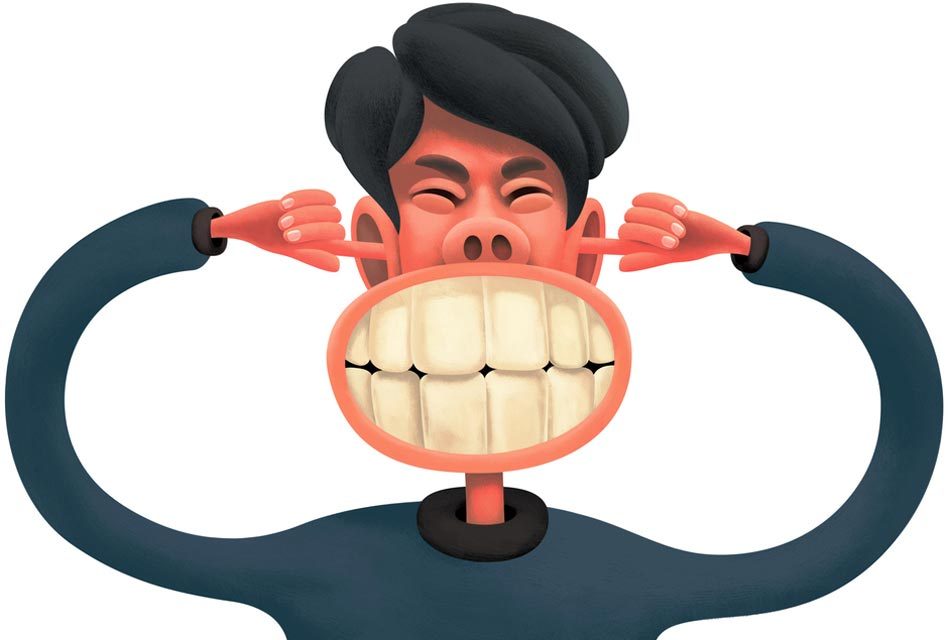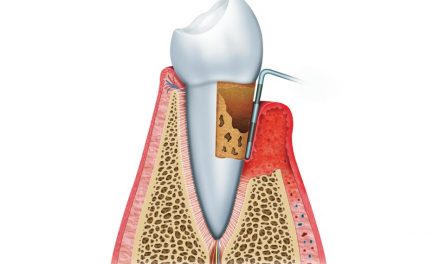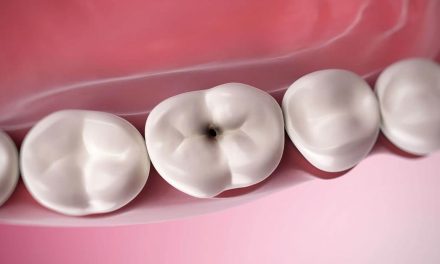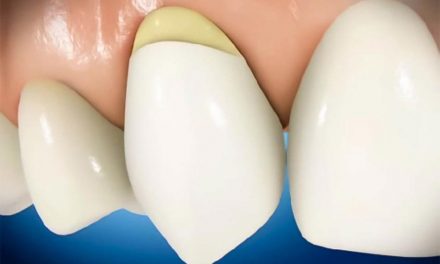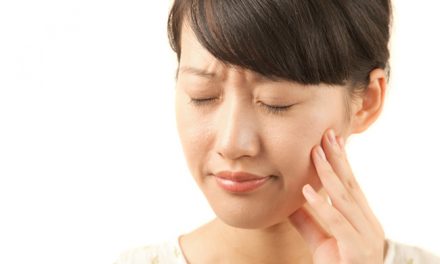Bruxism is an anomaly where the person affected grinds his or her teeth. Bruxism occurs in most people, but is often light, or occasional, and does not affect someone’s health. But when tooth grinding becomes more frequent, it may initiate significant complications, leading to severe damage towards the jaws and teeth.
Causes
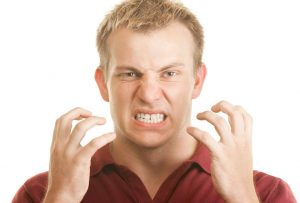 Research suggests that the most likely reason that causes bruxism is a bad occlusion (alignment) between the top and bottom jaws. For people who suffer from bruxism at night, it is thought that there is also a problem of sleep cycles.
Research suggests that the most likely reason that causes bruxism is a bad occlusion (alignment) between the top and bottom jaws. For people who suffer from bruxism at night, it is thought that there is also a problem of sleep cycles.
Here are the most suspected causes of bruxism:
- Anxiety or stress.
- An abnormal closure of the teeth caused by misaligned teeth or many absent teeth.
Symptoms
 Since teeth grinding occurs mostly during sleep, people may not be aware of it. However, a migraine or jaw pain, especially in the morning, is a symptom that suggests the presence of bruxism. Many people learn that they grind their teeth from their spouses who hear teeth grinding during the night.
Since teeth grinding occurs mostly during sleep, people may not be aware of it. However, a migraine or jaw pain, especially in the morning, is a symptom that suggests the presence of bruxism. Many people learn that they grind their teeth from their spouses who hear teeth grinding during the night.
If you suspect that you are suffering from teeth grinding, you are recommended to consult your dentist. He or she will check for signs of bruxism, such as tooth wear or cracking of the jaw.
Why is bruxism harmful?
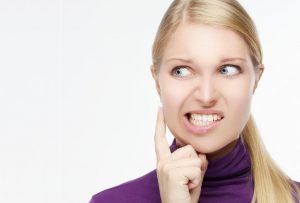 Chronic teeth grinding can fracture, use up, or cause tooth loss. In these cases treatments such as crowns, bridges, root canals or implants may be necessary.
Chronic teeth grinding can fracture, use up, or cause tooth loss. In these cases treatments such as crowns, bridges, root canals or implants may be necessary.
Severe bruxism can not only damage teeth, but could also worsen the condition of the jaws. If not treated, this problem can lead to a partial loss of hearing affect the temporo-mandibular joint (TMJ), or even change the appearance of the face.
Treatments
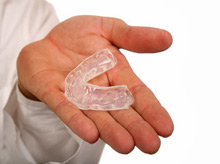 In most cases, when bruxism is mild, no treatment is necessary. It’s when teeth grinding becomes severe and causes damage or pain that it should be treated. Here’s what you can do:
In most cases, when bruxism is mild, no treatment is necessary. It’s when teeth grinding becomes severe and causes damage or pain that it should be treated. Here’s what you can do:
- Reduce stress.
- Reduce eating or drinking foods that contain caffeine such as coffee, chocolate or soft drinks.
- Avoid chewing on objects that are not foods, such as pencils.
- Stop yourself from grinding your teeth, if you are aware it, and if it happens during the day.
- Relax your jaw muscles in the evening, before sleeping, by using a damp and warm cloth applied against your face in front of your ear.
- If none of these methods works, your dentist can make you a bite splint that can be worn night time while you sleep; that’s when most episodes of teeth grinding occur.
Bruxism in children
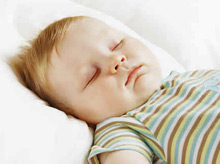 15 to 33 percent of children grind their teeth, and this happens mostly during tooth eruption. This type of bruxism happens when the child is sleeping and many parents notice it because they hear grinding noises in the child’s mouth.
15 to 33 percent of children grind their teeth, and this happens mostly during tooth eruption. This type of bruxism happens when the child is sleeping and many parents notice it because they hear grinding noises in the child’s mouth.
There was no major treatment for young children who suffer from bruxism. Most of them lose the habit when they reach adolescence.
Here are a few tips for helping a child to reduce teeth grinding:
- Reduce a child’s stress level, especially before sleep.
- Try massaging and relaxing the muscles of the face.
- Make sure that the child’s diet contains a lot of water because dehydration can be connected with teeth grinding.
- Ask your dentist to check if your child has signs or bruxism, such as tooth wear.
References
Wikipedia, the free encyclopedia (www.wikipedia.org).
WebMD, better information, better health (www.webmd.com).
The information above should be used as a reference only. Any medical decision should not be taken before consulting a health care professional.
The masculine gender may have been more used in the article, but without prejudice, to make reading easier.
Category dental problems
- Abfraction
- Abrasion
- Ankylosis
- Anodontia
- Attrition
- Broken fillings
- Bruxism (Teeth Grinding)
- Cavity (tooth decay)
- Cold sore (herpes labialis)
- Dental abscess
- Dental plaque
- Denture Irritations and Infections
- Denture stomatitis (prosthetic stomatitis)
- Dry socket
- Erosion
- Fluorosis (dental)
- Gingival hyperplasia
- Gingival pocket
- Gingivitis
- Gum Disease (Periodontal Disease)
- Gum recession
- Halitosis (Bad Breath)
- Hyperdontia (supernumerary teeth)
- Hypocalcification
- Hypodontia
- Impacted tooth (tooth impaction)
- Leukoplakia
- Lichen planus
- Malocclusion (Misaligned Teeth)
- Microdontia
- Micrognathia (micrognathism)
- Mucocele
- Oligodontia
- Oral cancers
- Oral candidiasis
- Overbite
- Overjet
- Pericoronitis
- Periodontal pocket
- Periodontitis
- Prognathia (prognatism)
- Resorption
- Retrognathia (retrognatism)
- Sleep apnea
- Tartar (Calculus)
- TMD (Pain and Cracking of the Jaw)
- Tooth Discolouration
- Tooth sensitivity (sensitive teeth)
- Torus
- Trismus
- Ulcers and canker sores
- Xerostomia (Dry Mouth)

